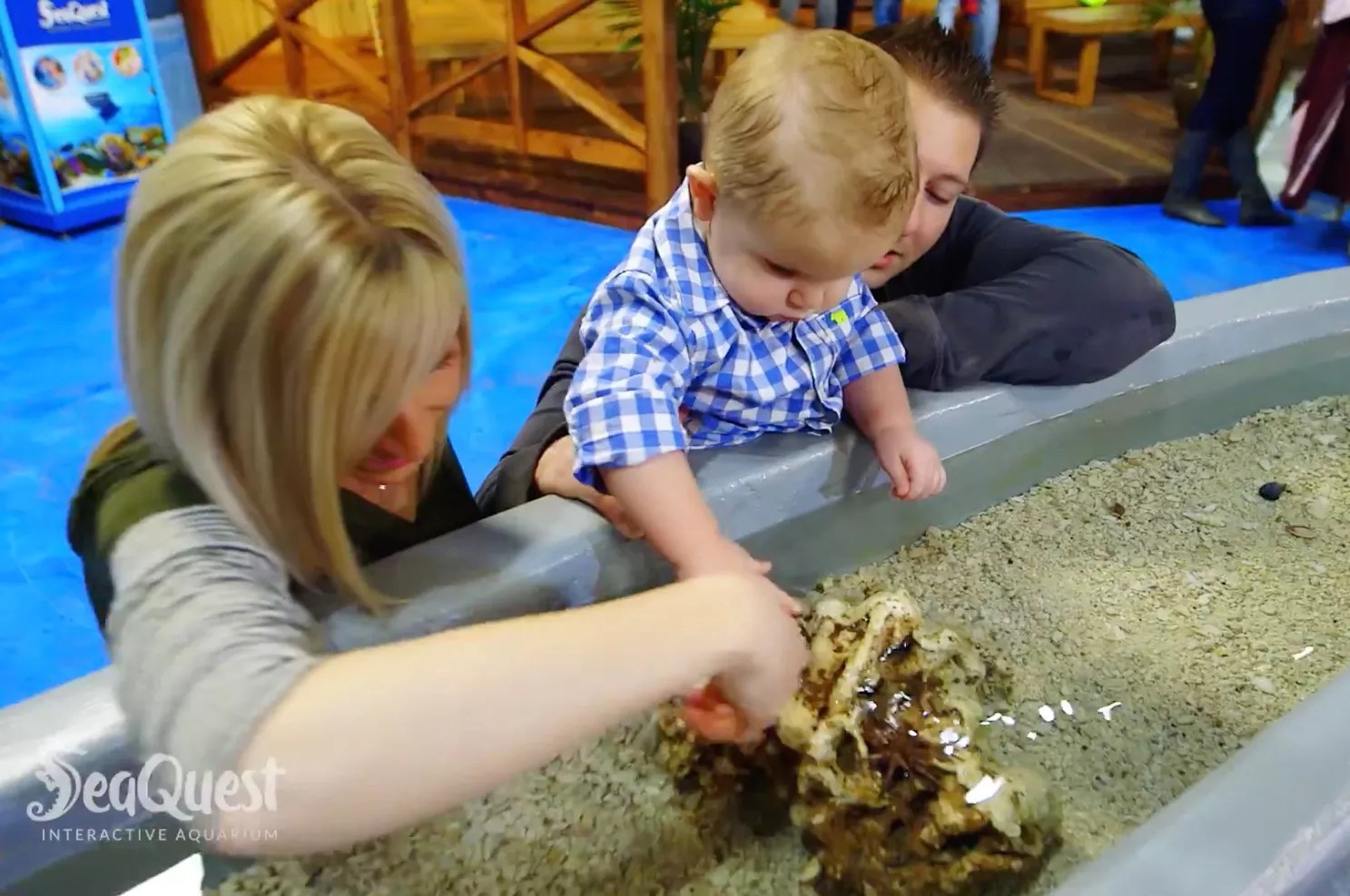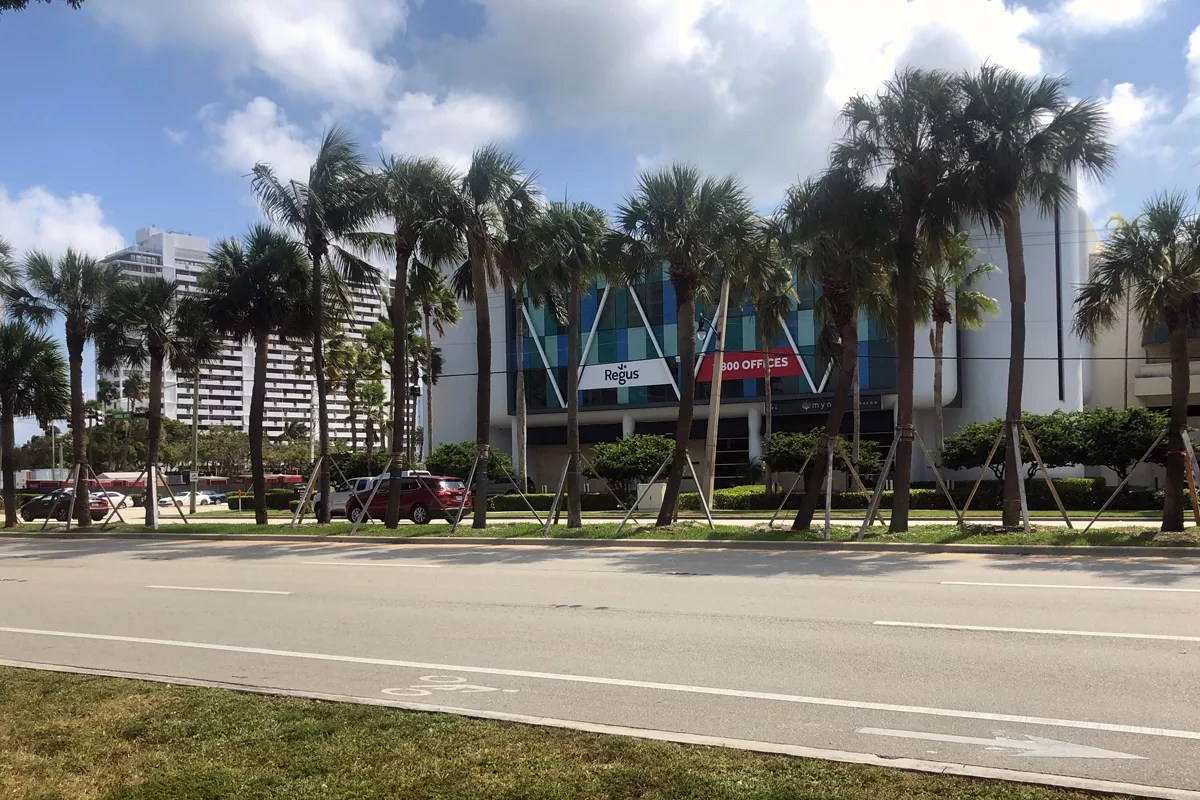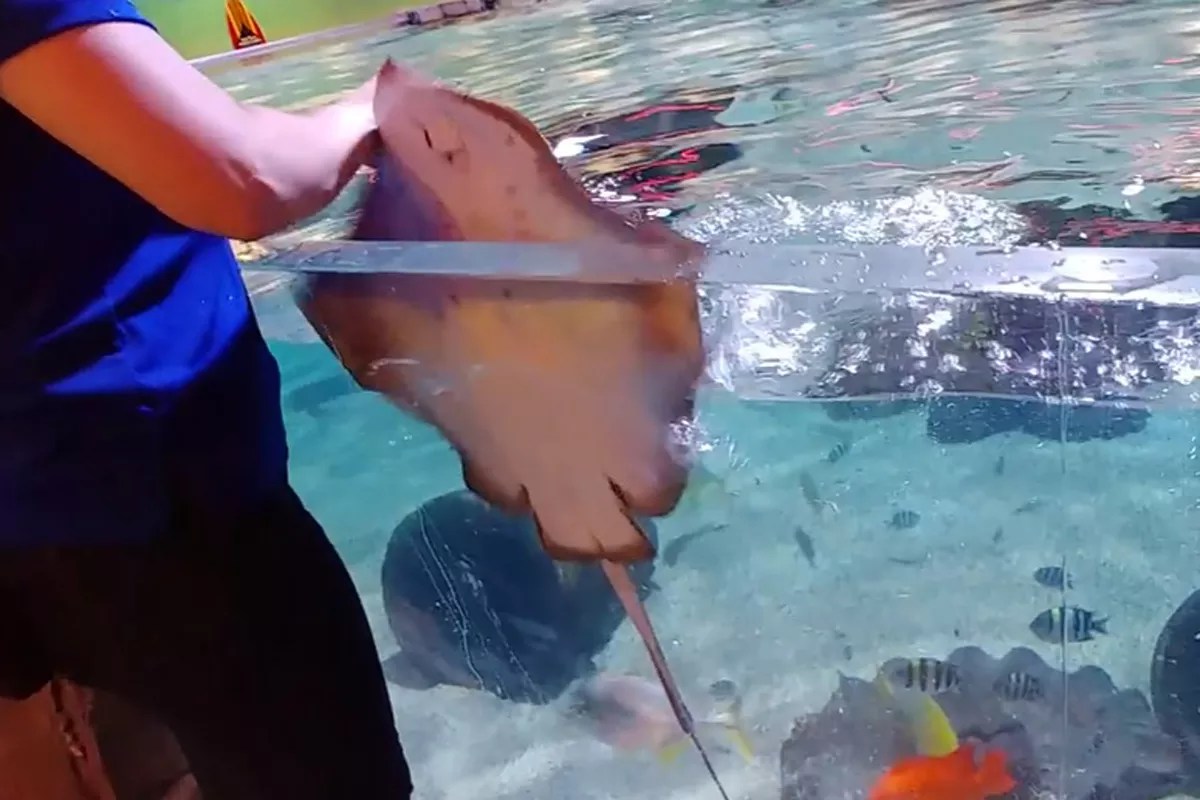
via YouTube

Audio By Carbonatix
SeaQuest Fort Lauderdale is selling tickets on its website, but the controversial sea-life attraction, which had been slated to open last fall at the Galleria, appears to be nowhere near completion.
Walk around the east side of the shopping mall’s third floor and, other than Powerhouse Gym and H&M, it’s an echo chamber of cavernous emptiness. Outside, there’s no sign a 23,000-square-foot venue that promises 32 exhibits, 1,200 animals, and an estimated staff of 70 will open for business by Thanksgiving.
“Construction has begun on SeaQuest,” a spokesman for the Galleria says, “but it is not visible.”
SeaQuest CEO Vince Covino recently said the opening could be delayed further – until some time in December.
Workers in that area of the mall told New Times they had not seen anything related to SeaQuest being built yet in the space that once housed the department store Lord & Taylor.
Whatever the status of SeaQuest Fort Lauderdale, efforts to prevent the interactive marine-life venue from opening are well underway.
Animal-rights advocates, led by People for the Ethical Treatment of Animals (PETA), last week petitioned the U.S. Department of Agriculture (USDA) to deny SeaQuest’s request to add Fort Lauderdale (along with other locations where the company plans to open) to its federal Animal Welfare Act exhibitor license.
Locally, PETA, the Animal Rights Foundation of Florida, and activist Ana Campos filed suit against the City of Fort Lauderdale in March in order to nullify the city’s approval of SeaQuest’s plan to open at the Galleria. The plaintiffs allege the permit the city granted is in direct conflict with its own zoning code, which bans animal exhibits. Commissioners had accepted the revised language of SeaQuest’s proposal, which employed the term “museum” in place of “exhibits” to describe its for-profit enterprise.
“We are asking for the permit to be tossed,” Michelle Sinnott, an attorney for PETA, tells New Times. “We are hopeful we will hear something soon.”
A USDA spokesman said he couldn’t comment on PETA’s recent petition but noted the agency is looking into complaints against SeaQuest at the request of U.S. Rep. Ted Deutch (D-FL), whose district includes the area of Fort Lauderdale where the mall is located. Last year, Deutch called for an investigation of SeaQuest for what he described as “very serious and disturbing allegations of animal mistreatment.” The congressman cited media reports of animal deaths, visitors and employees injured by animals, and other violations of the Animal Welfare Act.
In an August 1, 2018 letter to the USDA, Deutch inquired about the status of SeaQuest’s federal permit for the Fort Lauderdale location and whether the review process for the site would delve into past violations at other SeaQuest outposts.
“This organization and its owners have a long-documented history of disregard for the law and for animal welfare,” Deutch wrote.
A spokesman from Deutch’s office in Washington, D.C., tells New Times: “We will continue to follow this case closely.”

SeaQuest Fort Lauderdale is under construction on the east side of the Galleria in Fort Lauderdale.
Photo by Teri Berg
A USDA spokesman from the department’s Animal and Plant Health Inspection Service, which oversees exhibitor licensing as well as the care and handling of marine animals, confirmed the division’s response to Deutch’s request but could not comment on the status of the permit.
Additionally, SeaQuest Fort Lauderdale must pass muster with the Florida Fish and Wildlife Conservation Commission (FWC), as well as six City of Fort Lauderdale departments. An FWC spokesperson from the agency’s South Region could not immediately comment on whether SeaQuest had filed for a state permit, but the city’s development review process was completed in February 2019, according to Yvonne Redding, an urban planner for the city and case chair for the SeaQuest proposal.
“The change-of-use permit, which is the master permit for the project, was issued on May 24, 2019, and there have only been a few inspections since the permit was issued,” Redding says. “The other permits are for mechanical (usually A/C systems or something similar), plumbing, electrical, and fire alarm/fire sprinkler system.”
Redding says four of seven building permits so far have been issued.
SeaQuest operates aquariums in seven states, including Texas, Utah, Nevada, and California, and plans to open sites in New Jersey and Virginia this year. Outposts in Connecticut and Minnesota opened this past summer.
All of SeaQuest’s sites operate as for-profit entities. None is accredited by the Association of Zoos & Aquariums (AZA), an organization dedicated to animal welfare and conservation. (The AZA counts among its membership 230 institutions in the United States and abroad; according to its website, its U.S. membership represents less than 10 percent of the 2,800 wildlife exhibitors licensed by the USDA under the Animal Welfare Act.)
Some SeaQuest sites are in limbo. The State of Colorado in April suspended SeaQuest’s exhibitor’s license for two years after a rash of incidents in which animals bit or otherwise injured visitors at the company’s Littleton site; a manager at that location went on trial last week on charges of animal cruelty in connection with a sloth that was severely burned by a heat lamp.
In May, Covino announced the company had scrapped plans to open in Massapequa, New York. The CEO cited extended delays with the Long Island project, which was on roughly the same schedule as SeaQuest Fort Lauderdale. But activists count SeaQuest’s withdrawal of that application as a victory won out of strong opposition that included actor Alec Baldwin petitioning city officials to deny SeaQuest’s permit application.
Locally, Hallandale Beach Commissioner Michele Lazarow, long an advocate for animals and president of the Alliance for Animal Welfare, urges her counterparts in Fort Lauderdale to take action to prevent SeaQuest from opening.
Lazarow recently introduced an ordinance in Hallandale Beach to incorporate safety and welfare regulations into existing laws that cover displays of live animals.
“It was out of concern for the health, safety, and welfare of Hallandale Beach residents that I took a proactive measure to ensure a business like SeaQuest would not be able to open in Hallandale Beach,” Lazarow tells New Times. “I would prefer to defend a lawsuit against SeaQuest, a company with [a history of] documented cruelty, than to defend one if a child is injured in one of their exhibits.”
Initially, SeaQuest had set the opening of its Galleria location for fall 2018. Covino blames delays on opposition from animal-rights groups and bureaucratic red tape. In September, Covino told the South Florida Business Journal the multimillion-dollar project has cost more than expected, though he didn’t give specifics.
The company has been selling admission tickets and season passes for growing number of South Floridians interested in visiting the site are posting questions and complaints on SeaQuest Fort Lauderdale Facebook page. One woman who said she’d purchased season passes went to the Galleria, thinking the aquarium was open.
“We walked the mall up and down. We were standing where it was supposed to be located and could not even figure out where it was,” the woman posted. “The mall information desk said they were nowhere near ready to open and that she doubted they would be open before the end of the year.”
Tickets, costing from $29.95 to $99.95 for annual passes, have been on sale since June 2018.
Fort Lauderdale has often led other cities in Broward County and around the state in animal-welfare regulations, but when it comes to aquatic animals, the city’s history is murky.

SeaQuest promo image of a staff member feeding a stingray at one of the company’s interactive aquariums.
Screenshot via YouTube
The defunct marine park Ocean World remained in business near the 17th Street Causeway for nearly 30 years despite the efforts of animal-rights activists. Ocean World housed more than 200 animals, including tropical birds, fish, otters, harbor seals, sea turtles, alligators, and dozens of Atlantic bottlenose dolphins and sea lions. The park also had its share of the kinds of problems that seem to plague SeaQuest, including injuries to visitors and multiple animal deaths. A USDA investigation of animal cruelty temporarily shuttered the park in 1992, and a 1990 lawsuit alleged at least 24 patrons had been bitten by dolphins.
When Ocean World closed in 1994, management blamed declining attendance and limited space for expansion. The city did not force the matter. In fact, even while acknowledging the marine park wasn’t particularly beneficial to Fort Lauderdale financially, city tourism officials said they were sorry to see Ocean World go.
“There are so many larger marine theme parks with larger marketing budgets in the state,” Greater Fort Lauderdale Convention & Visitors Bureau president C. Dean Hofmeister lamented at the time. “It’s tough to compete when you can’t build a bigger following by adding attractions.”
West Palm Beach boasts the massive South Florida Science Center and Aquarium, and Miami is home to the 38-acre Seaquarium, as well as a three-level aquarium at the Frost Museum of Science. As popular as it is with tourists and the convention crowd, Fort Lauderdale remains South Florida’s one tourism destination without an aquarium.
Both the Science Center and Frost Science are nonprofits, though neither is AZA-accredited. (Only three institutions in South Florida are AZA members: Zoo Miami, the Palm Beach Zoo, and Lion Country Safari in Loxahatchee.)
Miami Seaquarium, which has long sparred with animal-rights groups over allegations of neglect and mistreatment of its marine animals, is, like SeaQuest, a for-profit business. Owned by Palace Entertainment, the theme park, which sits on a site on Virginia Key that it leases from Miami-Dade County, brings in an estimated 500,000 visitors annually.
Experts in the aquarium industry, most of whose members are nonprofit organizations, have questioned SeaQuest’s business practices, its track record of legal troubles and government sanctions, and the company’s identity as a so-called museum.
In July, after a SeaQuest location opened in a mall north of Bridgeport, Connecticut, the Maritime Aquarium in nearby Norwalk released this statement: “We are concerned when we read that SeaQuest’s operations in other locations not only have fallen short of AZA standards, they have triggered criminal charges and regulatory fines in response to their care of animals and their attempted procuring of species from the marine environment.”